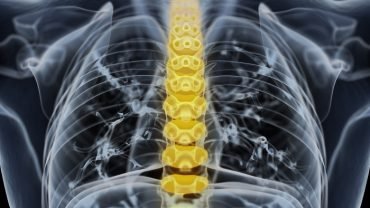10 Science-Backed Ways to Keep Your Teeth Healthy
People have a tendency of judging others by the whiteness of their teeth.
The reason is simple, oral hygiene should be strictly followed, if you don’t, it shows.
Yellow or stained teeth are often a source of embarrassment, low confidence, and even worse, they can be an indication of some types of dental problems.
Poor oral hygiene can be the cause of future medical and dental issues like gum disease, heart disease, infections, bone loss, and stroke among many more.
The degree of discoloration of teeth among people varies.
When you drink or consume a specific type of foods, you can develop stains.
The buildup of plaque should also worry you. Plaque makes your teeth look yellow and dull (1).
The best way to keep your teeth healthy is to stick to a well-balanced diet.
The diet will provide the vitamins, minerals, and nutrients that are essential for your teeth to be healthy.
There are also a wide variety of ways to ensure that your teeth stay healthy and white all the time.
Here are ten science-backed ways to keep your teeth healthy.
Don’t Forget to Floss
This is one of those dental care processes that most people forget to carry out.
It is a chore, and after brushing, most people wouldn’t care to floss.
Brushing alone isn’t sufficient to ensure that all the particles remaining between the teeth are removed.
Flossing is much better suited and it will rid your teeth of the particles as well as other foreign substances.
With a dental floss, you can reach deep within the teeth where the bristles of your brush cannot penetrate or where the mouthwash won’t effectively clean.
When particles are not properly removed, plaque abounds.
This becomes a breeding ground for bacteria and it could pose severe issues.
There are numerous studies that have been conducted to confirm that flossing gets rid of plaque.
One study shows that the removal of plaque helps prevent gingivitis and tooth decay (2).
The idea is that gum disease is the ultimate contribution to tooth loss.
A decay may also be another risk factor for tooth loss.
Dental flossing, therefore, is the added advantage to brushing your teeth.
Flossing is also a good sign of finding out the telltale signs of oral issues.
For instance, if you were to floss and your gums start to bleed, it is a warning that there might be some bacteria in your mouth.
These bacteria could spread and cause inflammations in other parts of your body.
Keep in mind that some dental liquids are not replacements for flossing.
Some of them may be hard on your gums.
In short, if you brush and floss, you can only rinse with a mouthwash.
That said, you may find it helpful if you have chains for braces.
Avoid Staining Products
The easiest way to keep your teeth healthy is by preventing stains and yellowness from developing.
The stains could lead to plaque, then bacteria, and eventually serious oral problems.
Stains are caused by a wide variety of drinks and foods.
Even your diet can cause yellowness.
Because people will judge the health of your teeth by how white they are, you might want to avoid frequent use of these types of foods and drinks that cause discoloration:
It is impossible to completely exclude these drinks in your diet, especially if you are addicted to them.
You can, therefore, reduce the frequency to which you take them.
If you should drink the beverages, ensure that you minimize the direct contact they maintain with the teeth.
A straw will be helpful.
Doing this will reduce the staining effects and the buildup of plaque.
If it is not brushed away, accumulation of bacteria may occur, which will lead to the breaking down of sugars into acids that will wear the enamel part of the tooth.
In other occasions, the plaque may harden to what is referred to as tartar, which is often responsible for gingivitis and gum inflammations.
Instead of these types of food, you can incorporate others into your diet.
Consume foods that strengthen your teeth and fight bacteria buildup apart from getting rid of the plaque.
Foods like cheese and nuts are some that will strengthen your teeth and prevent yellowing or discoloration.
Eat Foods with High Amounts of Fiber
It isn’t something you hear every day, but eating dietary fiber has oral health benefits.
High fiber foods will maintain the health of your teeth as well as the gums.
Most of the foods containing high amounts of fiber involve vigorous chewing.
It is this prolonged process of chewing that will benefits your teeth and gums.
This physical process allows more production of saliva that will aid in the digestion.
The saliva does more than just break down the chewed food.
It keeps the food from getting stuck to the teeth, which may ultimately lead to tooth decay.
Saliva also contains some antibacterial properties.
This makes it better suited for fighting dental carries, the bacteria responsible for decaying the tooth.
Also, the saliva neutralizes acids in food.
This is the reason why it is important to get your fiber from natural food sources.
Fiber supplements like powders, pills, and gummies may help other organs in your body, but will not do much for your teeth.
In fact, some of them contain artificial sweeteners, which may not be good for the health of your teeth.
But where do you get dietary fiber? Lots of foods contain fiber.
For example, carrots and cucumber. They contain insoluble and soluble types of fiber.
They are the first choice for healthy meals and snacks.
Similarly, you can source your fiber from fruits.
Apples and pears also increase saliva flow and they keep your teeth healthy and strong (3).
Fibrous vegetables, celery, and dairy products are other food sources you can incorporate into your diet for healthy teeth.
In another study conducted by American researchers, it was found that older men who ate the diet filled with fiber like apples, oranges, bananas, blueberries, sweet potatoes, and leafy greens benefited from a 30 percent likelihood of lost teeth and 24 percent lower risk of bone loss associated with receding gums (4).
Use Fluoride
Grasping that teeth are dynamic is the first step in understanding fluoride.
Your teeth will consistently lose and regain their strength through minerals that make them strong.
Unfortunately, as we age, our teeth tend to decay faster, causing us to regularly go for dental checkups.
The decay is caused by acids, as already mentioned.
We can strengthen our teeth using fluoride.
Fluoride strengthens the enamel, making it better suited for withstanding wear and tear.
Fluoride isn’t just for children.
Usually, fluoride is given to children during the first years of their lives.
Fluoride also helps us prevent cavities.
It slows down the bacteria that accumulate in our oral cavities, making the surface of the teeth more resistant.
Fluoride heals the tiny cavities before they develop into potentially large and real cavities.
Caution, however, should be exercised while using fluoride.
Overexposure may cause pitted enamels (5).
The importance of fluoride in strengthening teeth is backed by research that showed that fluoride prevents tooth decay, making the enamel resistant to the action of acids (6).
It leads to the acceleration of the buildup of healthy minerals in the enamel, which further helps in reducing the occurrence of tooth decay.
In fact, in some cases, fluoride can be used to treat teeth, which have already begun the decay process.
The source of fluoride is through the fluoridated water.
Most municipalities and water companies supply water, which is already fluoridated.
However, you can also source them from beverages made with fluoridated water, some types of fish, tea, toothpaste, and mouthwash among many more sources.
There are supplements for children who don’t have access to fluoridated water, but most importantly, check if the water in your area has fluorine to avoid overconsumption and end up mottling your teeth.
Consume Calcium
Calcium is good for osteoporosis, but did you know that it is one of the minerals we need to develop stronger and healthy teeth?
It doesn’t only strengthen and build the bones in our bodies, but also the teeth.
Calcium is one of the minerals that are abundant in our bodies.
It is also found in other types of foods and it can be added to dietary supplements and other vitamins consumed daily because it is that important and the body needs every bit of it.
In fact, almost all calcium is stored in the bones and the teeth.
Calcium is important for people of all ages including the babies and young children.
It is necessary for them to build strong teeth and bones as they grow, while the older generation needs it to maintain their teeth healthy and resistant to abrasion.
Sadly, most people do not have enough of calcium, which is a reason for weak bones including the jawbone.
This is a risk that may lead to the teeth falling out.
Apart from strengthening your bones, calcium has also been shown to help in reducing the risks of developing periodontal or gum disease.
According to the National Center for Biotechnology Information, women who consumed less than 500mg of calcium a day were more 54 percent more likely to have gum disease (7).
The amount of calcium needed by individuals isn’t universal.
There are recommended amounts of calcium needed, depending on gender and age (8).
For example, adults need less calcium than children or pregnant women.
However, the recommended amounts for adults older than 51 is 1200mg a day.
So, ensure that your diet includes milk and other foods rich in calcium.
Avoid Tobacco
The effects of tobacco do not only affect the overall health of an individual, but also the tissues in your mouth; both the hard and soft tissues.
Whether you smoke or chew tobacco, the effect is the same.
It poses serious issues like oral cancer, tooth decay, gum disease, receding gums, and poor recovery after surgery.
Smoking may also cause tooth loss. Studies have shown that the risks of tooth loss decline after cessation of smoking (9).
The study further concluded that current smokers have a three-fold risk of incident tooth loss compared to non-smokers.
Other different studies have also been conducted to determine the relationship between smoking and tooth discoloration.
One study found that apart from causing consequential tooth loss, periodontal disease, mucosal lesions, and oral cancer, the immediate oral manifestation noticed by the public is tooth discoloration.
Smoker’s teeth develop stains because of tobacco (10).
The stains may include dark brown, brown, yellow, or even black stains.
This might be a social challenge for smokers as tooth discoloration affects the general appearance and how people perceive you.
Cigarettes have more than 4800 chemicals most of which are known to cause cancer.
During the inhalation process, the smoke lingers for a while in the mouth before one exhales.
This has a direct and a negative impact on your oral health. It leads to a reduction of vitamin C that ensures the gums stay healthy.
Also, it reduces blood flow and raises the temperature in the mouth, which may cause damage to some of the most important cells.
The only solution to these types of tobacco effects is to quit.
The addictive quality of nicotine in tobacco used in cigars, chewing tobacco as well as other cigarettes may make this process very difficult for some individuals.
A plan and a support network go a long way in helping smokers stick to a particular quitting plan.
Brush Properly
While everybody may start the day with a healthy habit of brushing teeth, the truth is that most don’t really pay close attention when they brush.
It is only until we have a visit to the dentist that we get worried.
Oral hygiene only comes into focus once we notice something is wrong with us, and as a preventive measure, we brush carefully until we slip back to the old routine of not doing it properly.
Unfortunately, during this time, it might be already too late as the problems may have already spread to other parts.
Poor oral hygiene can have a negative impact on the overall health of a person.
The bacteria in your mouth may spread to other parts of the body, particularly when the immune system gets compromised.
Tooth brushing is commonly and widely recommended as a dental home care.
Regular tooth brushing is ideal for a healthy mouth and teeth as well.
Infrequent tooth brushing is associated with some serious forms of the periodontal disease (11).
People don’t brush their teeth properly.
By properly, it means ensuring that every tooth is covered as well as every surface.
Don’t forget the tongue as it can harbor lots of bacteria, especially those responsible for bad breath.
Tooth brushing is also one of the most important vehicles that you can apply anti-caries agents like fluorides (12).
Successful removal of plaque cannot be achieved if one doesn’t properly brush their teeth.
Twice daily is what most dentists will recommend daily for better control.
Brushing your teeth regularly and properly goes a long way in keeping your mouth and teeth for many years to come.
Proper tooth brushing isn’t a rocket science; however, it does require a bit of conscious effort to ensure that you do it right to realize the best results.
Drink Water
Drinking water is always healthy for proper body functions.
Surprisingly, water is necessary for ideal oral health.
First of all, staying hydrated helps the body to distribute essential nutrients that make the muscle to continue functioning and the waste products to be flushed away.
The same way, water flushes out food particles and stains on your teeth, particularly the fluoridated water.
You already know how fluoride helps prevent tooth decay, but what else should you know?
Whenever you drink acidic beverages or those with lots of sugars, with every sip of water that you take, it will get rid of the leftovers and clean your mouth.
It will rid the teeth of cavity-causing bacteria.
Also, it will neutralize the acids produced by the accumulated bacteria.
When you have a dry mouth, tooth decay is imminent.
When the saliva runs low, it will mean that nothing will wash away the leftovers.
So, what is the best solution? Drinking water, of course, is the answer.
It will hydrate the mouth and perform the similar function like bacteria and cut your risks of developing oral health problems.
What is even sweet about water is that it contains no calories!
This means you can substitute it with your acidic and sugary drinks.
It is also incredibly healthy.
The quality of the water consumed may also affect the oral health (13).
For instance, some traces of iron in drinking water have aesthetic problems like changes in the enamel color.
The best type of water to drink regularly is fluoridated water.
It contributes significantly to the improvement in overall health of individuals.
Avoid Sugary Foods
There are many types of food that you can eat.
However, worst of all is sugary food in terms of healthy teeth.
The number one culprits are sports drinks.
Although they may help you endure your exercises, these types of drinks contain sugars and other artificial sweeteners, which could be a recipe for disaster.
Similarly, any food that contains sugars may lead to plaque and a deteriorated dental hygiene.
This is why you should watch how much candy you eat, pastries, or cookies.
Sugars left behind by the food lead to the buildup of bacterial and eventually attract bacteria.
The interaction of the bacteria with plaque leads to the production of acids, which are responsible for tooth decay.
It slowly creates holes or cavities in your teeth.
Abscesses may result from the decay and eventually, when the tooth cannot be salvaged, it will have to be removed.
The process of tooth decay begins with what is referred to as demineralization.
This happens when the acid leech essential minerals from the enamel.
Luckily, an active process known as remineralization replaces the lost minerals, making your teeth stronger again.
What plays a major role here is the saliva.
Saliva contains phosphates and calcium that aid in the repair of the damaged enamel.
It becomes a challenge for the replacement of the lost nutrients if you eat lots of starches or sweets throughout the day.
One study found that there is a dynamic relationship that exists between sugars and oral health (14).
The research states that “sugars and other fermentable carbohydrates after being hydrolyzed by the salivary amylase, provide the substrate for the actions of oral bacteria, which in turn lower plaque and salivary PH.”
The result is that the tooth will begin to decay.
The same study further claims that the caries process is further affected by many factors in addition to sugars.
Luckily, with the use of fluorides, many people nowadays have strong and healthy teeth.
Eat Healthy
Having the best diet to compliment your daily brushing and flossing of your teeth is the best way to maintain healthy teeth, or even keep them away from predisposing factors to oral diseases and conditions.
Apart from eating calcium and phosphorous-rich foods, vitamins should not be left out.
Vitamin C particularly helps promote gum health, and eating plenty of fruits will not only give your teeth the fiber for strength but all the vitamins the body requires for better defense.
The type of nutritional diet you need include what you would mostly consume for your day to day maintenance of health for both the young and the old.
Apart from the fruits, other types of foods that will make your life even better include whole grains and dairy products.
Planning an easy diet is a simple task, the real question is, are you going to stick to the program?
Those who snack regularly might be tempted to break the routine.
So, how does nutrition affect our oral health? It happens during development.
Malnutrition may exacerbate periodontal diseases and other infections (15).
Some fermentable carbs may not be the culprit, but some studies show that fresh fruits and starchy staple food are necessary if associated with low levels of dental caries.
Should you consider sugar free foods, the frequency of consumption should be four hours apart.
Incorporate all the necessary nutrients into your diet for better results.
Conclusion
There you have it! Ten ways to ensure that your teeth stay forever healthy and white.
Whichever method works for you, you should ensure that you maintain your oral health and pay attention to it every day.
The most important thing to consider is to pay the dentist a visit.
You might not like the idea, but if you haven’t had a checkup for longer than six months, it is about time you do it now.
Also, if your gums or teeth are excessively sensitive, if the inflammations have spread to other parts of the body, please pay your doctor a visit.
FDA Compliance
The information on this website has not been evaluated by the Food & Drug Administration or any other medical body. We do not aim to diagnose, treat, cure or prevent any illness or disease. Information is shared for educational purposes only. You must consult your doctor before acting on any content on this website, especially if you are pregnant, nursing, taking medication, or have a medical condition.
HOW WOULD YOU RATE THIS ARTICLE?






